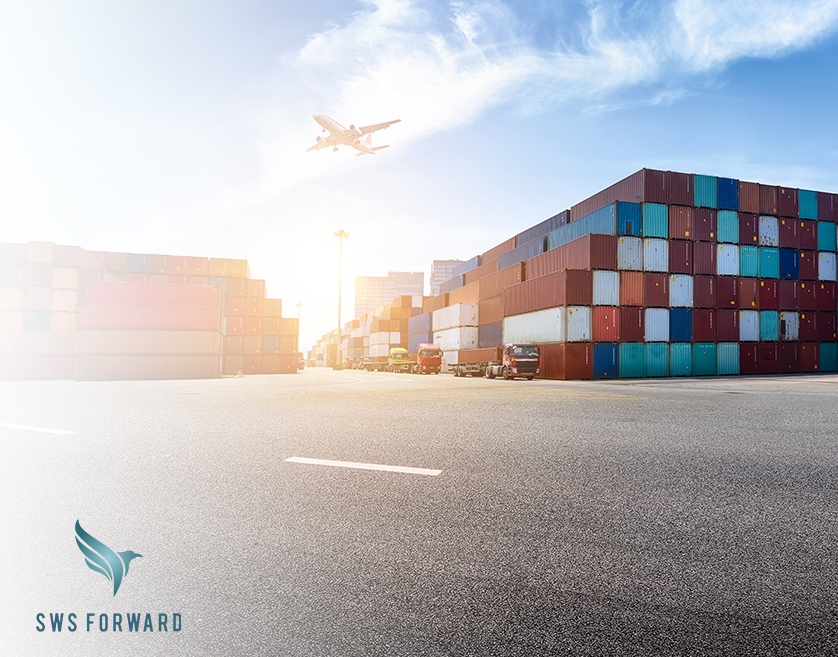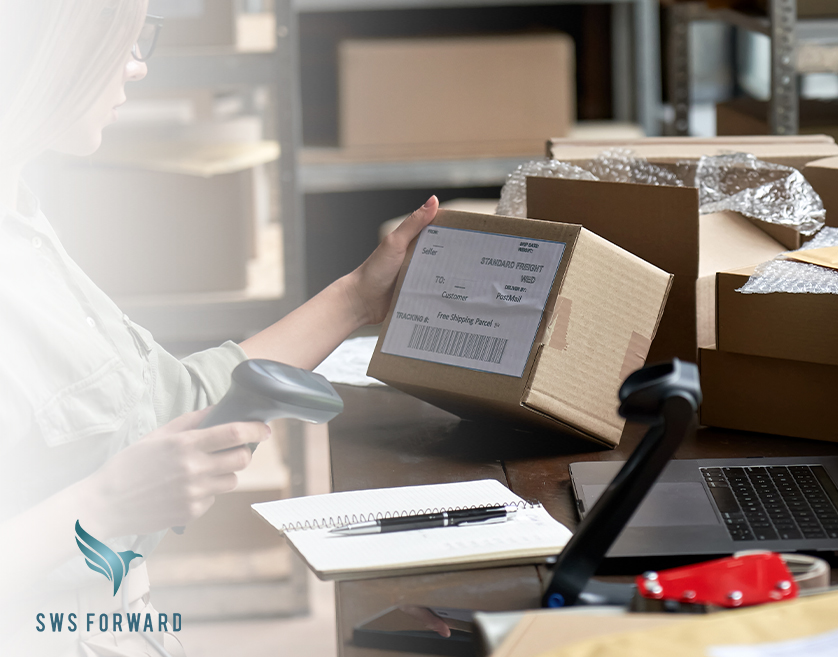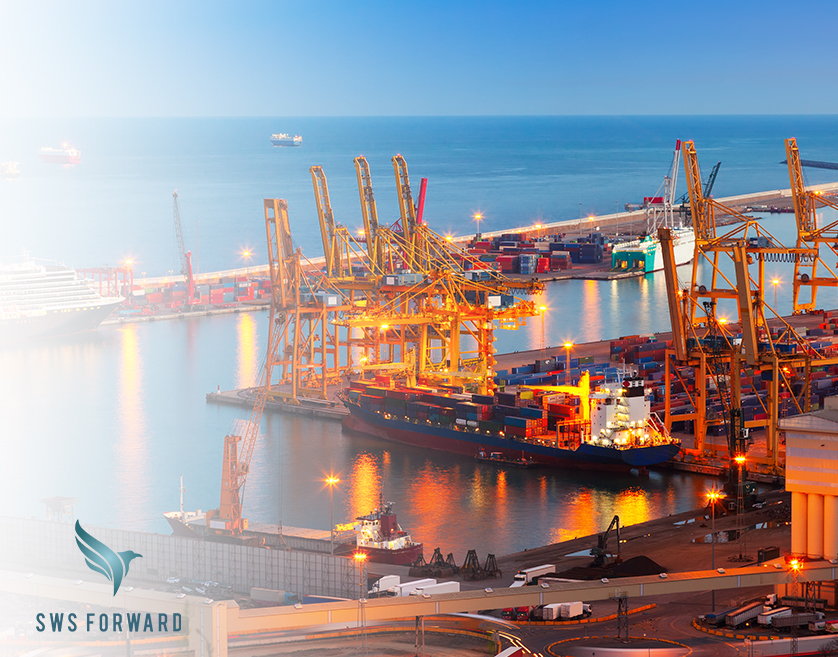A Complete Guide To Wholesale Logistics

Introduction to Wholesale Logistics
Every industry has its backbone, and for the wholesale business, logistics is that pivotal element. As the connecting bridge between producers and retailers, a well-functioning logistics system ensures that products reach their destination on time and in optimal condition.
Defining Wholesale Logistics
Wholesale logistics refers to the management, coordination, and execution of processes involved in the movement and storage of goods within the wholesale industry. This encompasses everything from inventory management to transportation, warehousing, and order fulfilment.
The Importance of Efficient Logistics in the Wholesale Business
In the competitive world of wholesale, having superior products alone doesn’t guarantee success. Efficient logistics plays a key role in ensuring customer satisfaction, timely deliveries, and overall operational efficiency.
The Core Components of Wholesale Logistics
Understanding the main components of logistics can help wholesalers optimise their operations and make informed decisions.
Inventory Management
A pivotal part of logistics, inventory management ensures that stock levels are maintained to meet demand without incurring excessive costs.
Methods of Inventory Tracking
From manual ledgers to sophisticated digital systems, tracking methods vary based on scale and complexity. Modern solutions like Radio Frequency Identification (RFID) tags provide real-time tracking and increase accuracy.
Balancing Supply and Demand
Predictive analytics and sales forecasting help wholesalers anticipate demand and adjust their inventory levels accordingly. This minimises stockouts and overstocks.
Warehousing
The storage hub for products, warehousing operations play a crucial role in the supply chain.
Types of Warehouses
From distribution centres to fulfilment warehouses, each type serves a unique purpose, catering to different stages of the product’s journey.
Effective Warehouse Management Strategies
Utilising vertical space, implementing just-in-time inventory methods, and optimising layout can drastically improve warehouse efficiency.
Distribution and Transportation
The physical movement of goods, transportation is the heart of logistics.
Choosing the Right Mode of Transport
Road, rail, air, or sea – the choice depends on factors like delivery urgency, product type, and destination.
Benefits of an Efficient Distribution System
Reduced costs, faster delivery times, and increased customer satisfaction are just a few of the myriad benefits.
Order Processing and Fulfilment
Ensuring orders are processed efficiently and accurately is key to customer satisfaction.
Streamlining the Order-to-Delivery Process
Automation and integrated systems can drastically reduce processing times and errors.
The Role of Technology in Order Fulfilment
From automated pick-and-pack systems to digital tracking, technology is revolutionising this domain.
Challenges in Wholesale Logistics
As dynamic as it is vital, logistics faces its own set of challenges.
Adapting to Market Changes
From changing consumer behaviours to global disruptions, wholesalers must stay agile.
Managing Costs
Fuel prices, labour costs, and operational expenses constantly fluctuate, requiring vigilant cost management.
Ensuring Timely Deliveries
Weather disruptions, customs delays, and infrastructure issues can hinder punctual deliveries.
Maintaining Product Quality and Safety
Ensuring products are stored and transported under appropriate conditions is crucial, especially for perishables.
The Role of Technology in Wholesale Logistics
In the digital age, technology has become a game-changer in logistics.
Automation and Robotics
Cutting-edge innovations are reshaping operations.
Benefits of Automation in Warehousing
Reduced human error, faster processing times, and optimised storage are some key benefits.
Robotics in Transportation
From self-driving trucks to drone deliveries, robotics is paving the way for the future.
Software Solutions
Digital platforms streamline operations and increase visibility.
Enterprise Resource Planning (ERP) Systems
These integrate various business processes into a unified system, streamlining operations.
Transport Management Systems (TMS)
Specialised software that optimises route planning, reduces costs, and enhances efficiency.
The Growing Influence of E-commerce on Logistics
The e-commerce boom has transformed logistics expectations and operations.
Adapting to E-commerce Demand
Faster shipping, flexible returns, and real-time tracking are now industry standards.
Multichannel Fulfilment Strategies
Wholesalers now juggle multiple sales channels, necessitating adaptive logistics strategies.
Best Practices in Wholesale Logistics Management
Staying ahead in the logistics game requires a blend of traditional wisdom and modern tactics.
Building Strong Vendor and Supplier Relationships
Mutually beneficial partnerships ensure a smooth supply chain.
Investing in Continuous Training and Education
An updated and skilled workforce is a company’s best asset.
Regularly Reviewing and Adapting Strategies
In the ever-evolving landscape of logistics, constant evaluation and adjustment are key.
Embracing Sustainability and Ethical Practices
Eco-friendly logistics is not just ethical; it’s often more efficient and appealing to modern consumers.
Future Trends in Wholesale Logistics
The horizon of logistics is dotted with promising trends and innovations.
The Shift Towards Green Logistics
Eco-friendly vehicles, sustainable packaging, and energy-efficient warehouses are leading the way.
The Integration of AI and Machine Learning in Wholesale Logistics
Predictive analytics, smart route planning, and automated customer service are just the tip of the iceberg.
The Rise of Direct-to-Consumer (D2C) Logistics Models
Bypassing traditional retail channels, D2C offers a more personalised customer experience.
Globalisation and the Need for Scalable Logistics Solutions
As businesses go global, logistics solutions must scale and adapt to diverse markets.
Leveraging SWS Forward in Wholesale Logistics
In the vast sea of logistics solutions, SWS Forward emerges as a beacon for wholesalers. It’s not just about moving goods from point A to B, but rather ensuring that every step of the journey is optimised, efficient, and responsive to the unique demands of the wholesale industry. Let’s delve into why SWS Forward stands out and how it can be the pivotal tool for wholesale businesses.
Tailored Solutions with SWS Forward
Every business is unique, and so are its logistics needs. SWS Forward understands this principle, offering tailored solutions that align seamlessly with a company’s operational goals and market dynamics. This customisation ensures that every wholesaler, regardless of size or niche, can find a perfect fit.
Advanced Technology Integration
Staying competitive in today’s market means harnessing the power of technology. SWS Forward has integrated advanced tech solutions, from AI-driven analytics to real-time tracking, ensuring that clients always have a pulse on their logistics operations and can make data-driven decisions.
Sustainable and Ethical Practices
In an era where consumers and businesses alike are becoming increasingly eco-conscious, SWS Forward is leading the way with its commitment to green logistics. This involves everything from using fuel-efficient transport solutions to promoting recyclable packaging, making sure that the logistics process leaves the smallest carbon footprint possible.
Expert Support and Consultation
A logistics platform is only as good as the team behind it. SWS Forward prides itself on its team of industry experts who offer constant support, insights, and consultations to clients. This means that any challenges or hurdles are addressed proactively, ensuring smooth operations and consistent growth.



